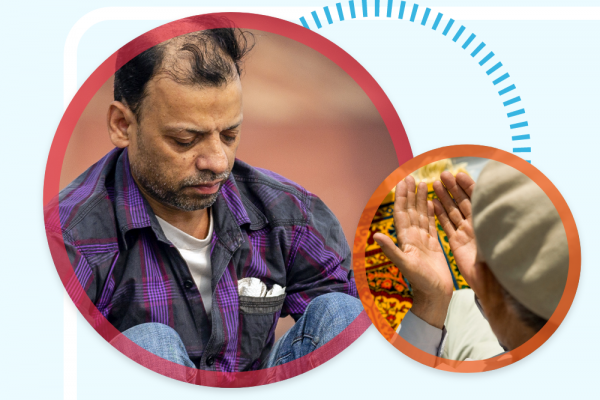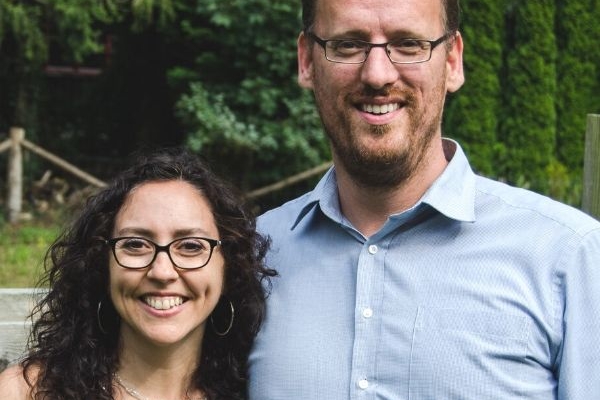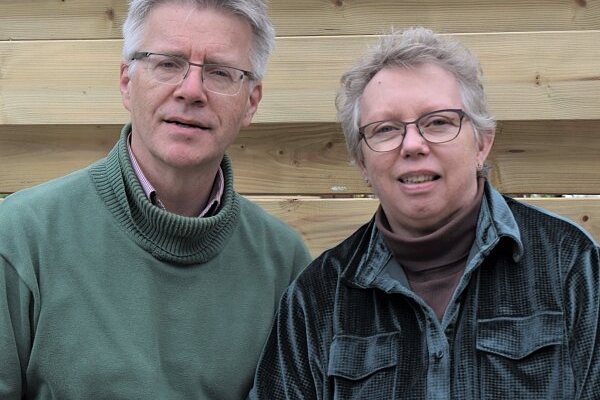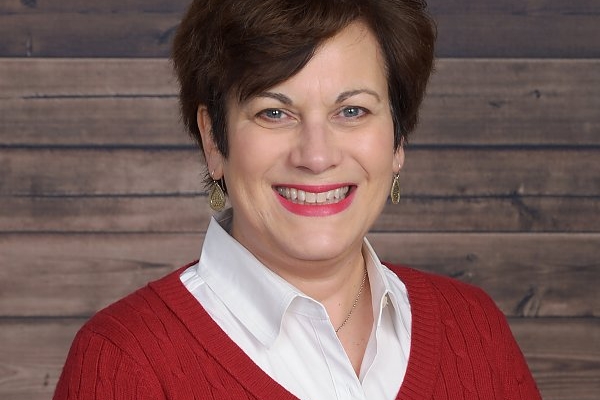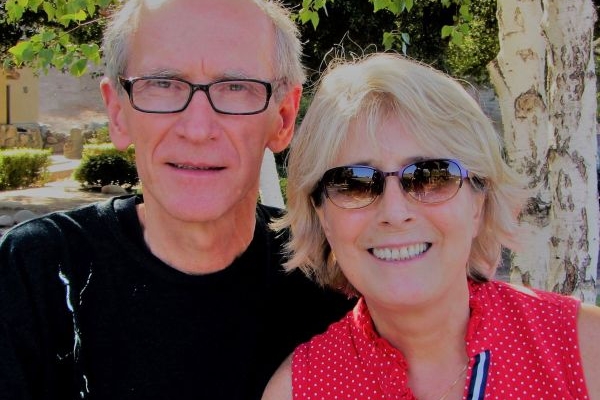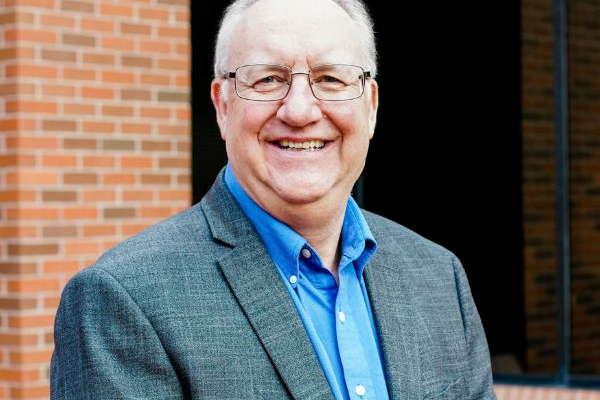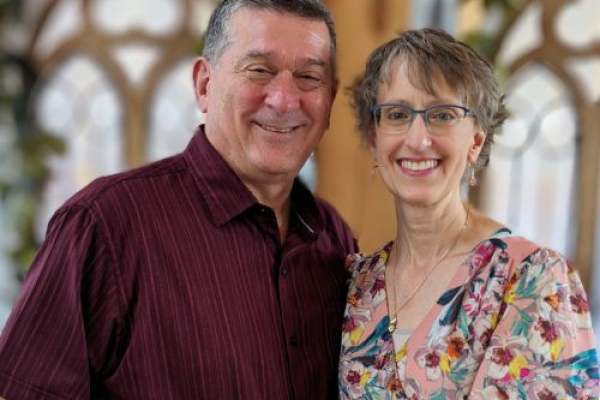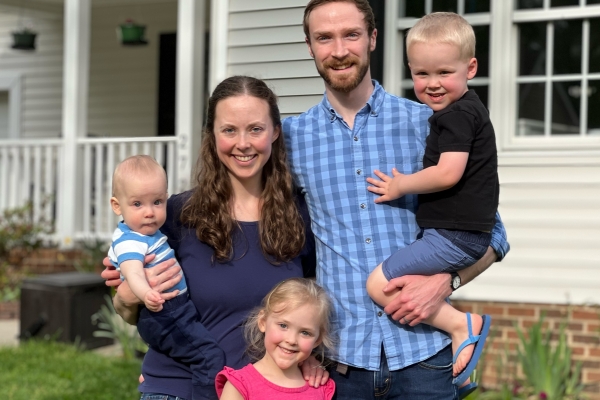
A Christian Approach to Media Literacy: Sorting Fact From Fiction
[estimated reading time: 7 minutes]

If we are diligently engaging with the Bible, we will be ready to filter conflicting information through the ultimate truth of God’s Word. [Image courtesy of Jade Alger, TWR]
We live in an age of information overload. This isn’t a new phenomenon. Think of King Solomon’s words in Ecclesiastes 12:12: “Of making many books there is no end, and much study wearies the body.”
Today, books only make up a fraction of media channels available. The printing press, the internet, personal computers, radio, multimedia devices, television and social media platforms have played a role in changing the way we receive and interact with information. Whether on billboards as we drive down the road, our Facebook feed as we scroll, or our go-to news site, we are bombarded with content. At times, we have little influence over what comes our way. But given the choice, we can select our information along with the package it comes wrapped in.
We should also consider the ease of content sharing. Steve Shantz, TWR’s vice president for digital initiatives, said that “up until about 30 years ago, it was expensive and difficult to spread information to the masses. It cost a lot of money to publish. Magazines and newspapers (except for some 'scandal sheets') staked their reputation on the accuracy of the information they published. People for the most part trusted what they read in the paper and heard over the airwaves.” Shantz went on to say that the publishing paradigm began to change with Web 1.0, giving anyone the ability to publish content cheaply and easily.
With the good also came the bad. Over time, traditional trust in media began to erode as expressive individualism, political campaigns and adversarial narratives paraded a one-sided story or a manipulated reality. Today, we are inundated with sensationalist stories, clickbait headlines and misguided ideas that are mixed in with beneficial content. If we don’t have methods in place for separating truth from falsehood, we can be “blown here and there by every wind of teaching” (Ephesians 4:14).
How do we as Christians navigate this environment?
Practical tips
Stay rooted in God's Word
If we are diligently engaging with the Bible, memorizing verses and applying them to our lives, when we come across conflicting information, we will be ready to filter it through the ultimate truth of God’s Word. “Your word is a lamp to guide my feet, and a light for my path” (Psalm 119:105).
![]()
Evaluate your media intake and habits
Media is a powerful tool that can be used for good or evil. Kristína Valovičová, a marketing manager for Radio 7 in Slovakia, described the intention of social media algorithms on Facebook and Instagram: “It’s kind of terrifying that when you scroll through stories or reels, you don’t know what the next one will be. You cannot choose it. The algorithm doesn’t only give you content you want to see but may also give you the opposite of what you like. It’s programmed to do anything to keep your attention.”
Valovičová suggests looking at the way Jesus lived his life on earth as we examine our social media habits. She makes the point that Jesus is the Living Word, reliable and unchanging. And Jesus was guided by the Father, not by culture or opinion. “We’re not called to be controlled by this [social media]. We’re called to rule over it and choose what we watch.”
Examine your own biases
It’s vital that we are self-aware as we engage with information. Misleading content tends to generate strong emotional responses. Rather than reacting to content that gives us instant gratification by reposting it, we should take time to evaluate whether the message is truthful. Partial truths can be hardest to detect.
Everyone believes things that aren’t true. Our family background and presuppositions influence the way we interpret the world around us. Through prayer and Bible reading, we can ask God to reveal our biases to us. Honest conversations with other Christians can challenge our biases. “As iron sharpens iron, so one person sharpens another” (Proverbs 27:17).
![]()
Diversify your news sources
We gravitate towards people and ideas that agree with our views of the world. On social media, engagement-driven algorithms appeal to our confirmation bias, which is our tendency to favor ideas that support our preconceived notions or core beliefs. We click on content that we agree with, and the platform continues to feed us similar content. This leads to an echo chamber, which Oxford Learner’s Dictionaries defines as “an environment in which somebody encounters only opinions and beliefs similar to their own, and does not have to consider alternatives."i To combat this, we can interact with varied content so that the algorithm understands our preference for diverse content.
It takes work to think critically and to cross-reference our news sources. Remember, there is no news outlet that is immune to bias, so reading from various sources can provide a more well-informed understanding. Relying solely on a single news outlet, whatever the platform, can lead to a skewed perspective.
Fact-check information
By fact-checking any news and information before sharing it on social media, we can lessen the chances of spreading misinformation. There are several reputable fact-checking websites, and it’s a good practice to verify content accuracy through one or more of these resources.
A good starting point is Snopes.com, a website that debunks urban legends, rumors and viral claims. Based in France, AFP Fact Check deals with topics related to the environment, health, politics and science.
![]()
Be quick to recognize false news tactics
We can be on the lookout for common disinformation tactics and deepen our understanding of how information is created, distributed and manipulated. While sensational headlines and stories may capture interest, they may present a skewed version of the narrative. We also need to consider the objective of the information being shared. Is there a political agenda behind it? Is it driven by greed?
Respond in love
When we encounter misinformation, we need to discern whether a response is appropriate. Because media often triggers an emotional reaction, it’s wise to pause, talk with God and check our hearts before reacting. If we choose to respond, we can humbly offer evidence-backed information without resorting to personal attacks.
 [Image courtesy of Patrick Fore, unsplash.com]
[Image courtesy of Patrick Fore, unsplash.com]
Guard your hearts
What we consume shapes our worldview – which ultimately determines our view of God and his Word. Today’s news is presented powerfully and persuasively. Without a biblical rooting, bias will mould us more than Scripture does. We needn’t detach from all media, but rather understand that “the task of listening with attention to others – especially those with whom we disagree – is an essential spiritual discipline”ii and consider how to formulate a Christ-centered approach.
Skewed information is a relevant topic in Scripture. The saints in Galatia were led astray by distorted material: “I am astonished that you are so quickly deserting the one who called you to live in the grace of Christ and are turning to a different gospel” (Galatians 1:6).
We may encounter something like the “different” gospel today: a seemingly attractive message that twists and manipulates the facts. The Lord is aware. Although his Word does not directly discuss today’s news outlets and social media platforms such as Instagram and TikTok, his eternal wisdom has us covered. “His divine power has given us everything we need for a godly life” (2 Peter 1:3).
He equips us through Proverbs 4:23: “Above all else, guard your heart, for everything you do flows from it.”
How do we apply God’s wisdom?
![]()
Acknowledge that our hearts need guarding
Being a Christian is often associated with openness, love and acceptance, and rightly so, but the notion of guarding our hearts is in contrast cautious and defensive. Whilst Jesus calls us to openness and acceptance, he also calls us to be shrewd and wise (Matthew 10:16), beginning with the realization that we must act firmly to guard our hearts. As pastor and author Alistair Begg writes, “Jesus is not calling his followers to some weak form of passivity which enables evil.”iii
Monitor how our hearts drive our actions
The second half of Proverbs 4:23 helps our application. It’s important to recognize when our actions aren’t flowing from a heart aligned with Christ. For example, if I listen to a podcast and it causes me to have angry arguments, could this be an indication that I am not guarding my heart?
![]()
Seek the Lord
Knowing God will guard our heart. Cultures and opinions change, but he remains the same. The more we know him, the more skillfully we will identify falsehood. God is pragmatic. As well as filling us with love, joy and peace, he wants us to grow in practical wisdom. Through his Spirit, we will.
Be confident and prayerful as you minister with and through 21st-century information. The Lord will empower us to serve and glorify him.
[Note: This article was written for the European Evangelical Alliance (EEA) and appeared in their September 2023 newsletter under the topic "Liberating Truth – Faithfully Navigating The Post-Factual World." See original article here.]
iOxford Learner’s Dictionary. (n.d.). Echo Chamber. In oxfordlearnersdictionaries.com. Retrieved August 1, 2023.https://www.oxfordlearnersdictionaries.com/definition/english/echo-chamber?q=echo+chamberiiHargaden, K. (2017). Media Bias and Christianity. Jesuit Centre for Faith & Justice. https://www.jcfj.ie/2017/11/22/media-bias-and-christianityiiiBegg, A. (2023). The Christian Manifesto. The Good Book Company. https://www.thegoodbook.com/the-christian-manifesto










